Ditapis dengan
Seorang Pria yang Melalui Duka dengan Mencuci Piring
Ketika menyambut pasien yang sedang berduka, seorang psikiater akan menggali keilmuan yang dimiliki. Dia akan mengulik semua teori duka yang pernah dipelajari di masa kuliah dulu dan mengingat pengalaman dari pasien-pasien sebelumnya. Kemudian, dia menyintesis itu untuk membantu pasien yang sedang berduka di hadapannya. Tapi, ketika Andreas - seorang psikiater - kehilangan anaknya, dia melakuka…
- Edisi
- -
- ISBN/ISSN
- 9786020674674
- Deskripsi Fisik
- xiii + 192 hlm; 13.5 x 20 cm
- Judul Seri
- -
- No. Panggil
- 155.25 KUR s
Segala-galanya Ambyar
Kita hidup dalam zaman yang menarik. Secara material, segalanya tampak sangat baik melebihi zaman-zaman sebelumnya, Meski begitu, entah mengapa segala-galanya tampak kacau balau dan benar-benar ambyar. Apa yang terjadi? Jika ada satu orang yang bisa membantu kita mengenali bencana yang terjadi saat ini dan ikut membantu memberesi, salah satunya adalah Mark Manson. Dalam buku ini, Manson membent…
- Edisi
- -
- ISBN/ISSN
- 9786020522838
- Deskripsi Fisik
- 311 hlm; 14 x 21 cm
- Judul Seri
- -
- No. Panggil
- 152.4 MAN s
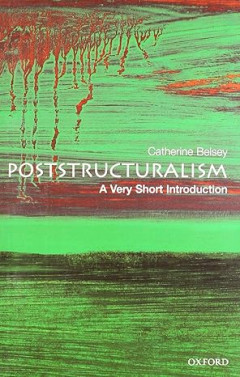
E-book Poststructuralism: A Very Short Introduction
Poststructuralism changes the way we understand the relations between human beings, their culture, and the world. Following a brief account of the historical relationship between structuralism and poststructuralism, this Very Short Introduction traces the key arguments that have led poststructuralists to challenge traditional theories of language and culture. While the author discusses such wel…
- Edisi
- -
- ISBN/ISSN
- 9780192801807
- Deskripsi Fisik
- 132 halaman.
- Judul Seri
- -
- No. Panggil
- 101 BEL p

E-book Postmodernism: A Very Short Introduction
Postmodernism has become the buzzword of contemporary society over the last decade. But how can it be defined? In this highly readable introduction the mysteries of this most elusive of concepts are unraveled, casting a critical light upon the way we live now, from the politicizing of museum culture to the cult of the politically correct. The key postmodernist ideas are explored and challenged,…
- Edisi
- -
- ISBN/ISSN
- 9780192802392
- Deskripsi Fisik
- 152 halaman
- Judul Seri
- -
- No. Panggil
- 149.97
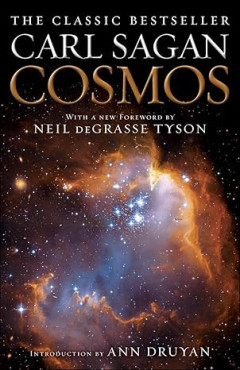
E-book Cosmos
In clear-eyed prose, Carl Sagan reveals a jewel-like blue world inhabited by a life form that is just beginning to discover its own identity and to venture into the vast ocean of space. Featuring full-color illustrations, Cosmos retraces the fourteen billion years of cosmic evolution that have transformed matter into consciousness, exploring such topics as the origin of life, the human brain, E…
- Edisi
- -
- ISBN/ISSN
- 9780307800985
- Deskripsi Fisik
- 358 halaman, ilus.
- Judul Seri
- -
- No. Panggil
- 113 SAG c
E-book Psychological Abuse : A Discussion Paper
This paper is a review of research on psychological abuse in interpersonal and family relationships including in settings such as long-term care residences. There is no simple definition of psychological abuse. Generally, researchers and front line service providers define it as the systemic destruction of a person’s self-esteem and/or sense of safety, often occurring in relationships where t…
- Edisi
- -
- ISBN/ISSN
- 9780662489948
- Deskripsi Fisik
- 37 hlm
- Judul Seri
- -
- No. Panggil
- 150 DOH p

E-book Ars Electronica 2023 Festival for Art, Technology, and Society: Exhibi…
Towards a New Social Contract Ars Electronica 2023 is dedicated to the complex questions of truth and the concept of ownership in this digital age. In doing so, the festival navigates the central questions of our time. The focus is on how our perception of “authentic” and “original” is being transformed and whether truth can be owned, and how this relates to digitalization and the rapid…
- Edisi
- -
- ISBN/ISSN
- 9783775756020
- Deskripsi Fisik
- 434 halaman, ilus.
- Judul Seri
- -
- No. Panggil
- 170.0 STO a
E-book The Muses of Truth and Transformation
The key event in this first part of the tale occurs when the old fisherman innocently opens the sealed flask he found, and the Djinn materializes from the bottle, and threatens to kill the old man. How are we to interpret this opening event?If this were someone’s dream, a common psychological interpretation would be that the Djinn, imprisoned in the bottle, represents a repressed, unconscious…
- Edisi
- -
- ISBN/ISSN
- 9781003471028
- Deskripsi Fisik
- 184 hlm
- Judul Seri
- -
- No. Panggil
- 150.1 CHI t
E-book Thirteen Fundamental Psychological Needs
Although individuals may have different goals and wishes on the surface, deep down we all want the same things. Our fundamental needs are universal: Regardless of culture, age, and lifestyle, everyone ultimately has the same set of needs. Needs are the basic requirements for our functioning and the nutriments for our well-being and advancement. We can only fully develop and flourish if all our …
- Edisi
- -
- ISBN/ISSN
- 9789463841856
- Deskripsi Fisik
- -
- Judul Seri
- -
- No. Panggil
- 150 DES t
E-book Reiner Schurmann and Poetics of Politics
To begin with a thinker who remained always attuned to the du-plicitous nature of beginning requires candor. There is a thetic dimension to every beginning, and we will do well not to deny it here. Rather, let us begin by attending to the things Reiner Schürmann himself said about beginning: “A starting point,” he wrote, “that neither abandons ordinary experience nor t…
- Edisi
- -
- ISBN/ISSN
- 9781947447738
- Deskripsi Fisik
- 178 hlm
- Judul Seri
- -
- No. Panggil
- 189 LON r
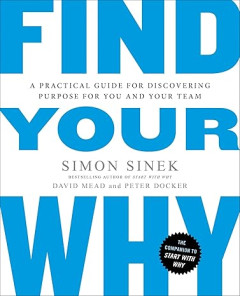
E-book Find Your Why: A Practical Guide for Discovering Purpose for You and Y…
Now Find Your Why picks up where Start With Why left off. It shows you how to apply Simon Sinek’s powerful insights so that you can find more inspiration at work -- and in turn inspire those around you. I believe fulfillment is a right and not a privilege. We are all entitled to wake up in the morning inspired to go to work, feel safe when we’re there and return home fulfilled at the en…
- Edisi
- -
- ISBN/ISSN
- 9780143111726
- Deskripsi Fisik
- 154 halaman, ilus.
- Judul Seri
- -
- No. Panggil
- 152.4 SIN f
E-book The Land Is Our Community : Aldo Leopold’s Environmental Ethic for t…
his is a book about Aldo Leopold’s land ethic,1 a view he developed over the course of his lifetime, a view that was informed by his experiences as a hunter, forester, wildlife manager, ecologist, con-servationist, and professor. It culminated in the essay “The Land Ethic” in A Sand County Almanac, published posthumously after his untimely death at age sixty-one in 1948. It has been extre…
- Edisi
- -
- ISBN/ISSN
- 9780226834474
- Deskripsi Fisik
- 198 hlm
- Judul Seri
- -
- No. Panggil
- 155.9 MIL t
E-book Aristotle and the Ontology of St. Bonaventure
The claim “what we know is what exists” appears, at first glance, to be quite an obvious statement – we know dogs and horses and so it seems obvious that dogs and horses exist. However, upon further reflection, it rather seems that what is most properly the object of our knowledge is not these particular dogs and horses themselves, but something that is universal – what Plato called a �…
- Edisi
- -
- ISBN/ISSN
- 9789461664884
- Deskripsi Fisik
- 227 hlm
- Judul Seri
- -
- No. Panggil
- 189 VAN a
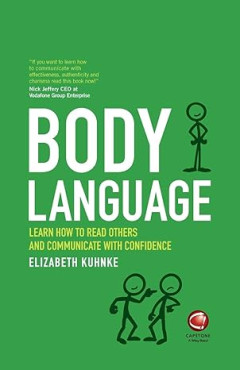
E-book Body Language: Learn How to Read Others and Communicate with Confidence
What does your body language say about you? From strangers on the street, to your closest friends and family – even if you're not speaking, you're saying a lot with your body. Body Language explores the way we use our bodies to communicate, the way we hold ourselves, the way we sit, stand, and point our hands, feet and eyes can all reveal how we are feeling in any given situation. This …
- Edisi
- -
- ISBN/ISSN
- 9780857087041
- Deskripsi Fisik
- 211 halaman
- Judul Seri
- -
- No. Panggil
- 153.6 KUH b

E-book Ethics 101: From Altruism and Utilitarianism to Bioethics and Politica…
Ethics 101 offers an exciting look into the history of moral principles that dictate human behavior. Unlike traditional textbooks that overwhelm, this easy-to-read guide presents the key concepts of ethics in fun, straightforward lessons and exercises featuring only the most important facts, theories, and ideas. Ethics 101 includes unique, accessible elements such as: -Explanations of the ma…
- Edisi
- -
- ISBN/ISSN
- 9781507204931
- Deskripsi Fisik
- 256 halaman, ilus.
- Judul Seri
- -
- No. Panggil
- 170.0 BOO e
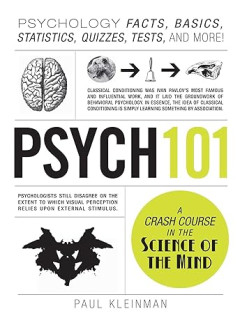
E-book Psych 101: Psychology Facts, Basics, Statistics, Tests, and More!
A hands-on approach to exploring the human mind Too often, textbooks turn the noteworthy theories, principles, and experiments of psychology into tedious discourse that even Freud would want to repress. Psych 101 cuts out the boring details and statistics, and instead, gives you a lesson in psychology that keeps you engaged - and your synapses firing. From personality quizzes and the Rors…
- Edisi
- -
- ISBN/ISSN
- 9781440543906
- Deskripsi Fisik
- 255 halaman, ilus.
- Judul Seri
- -
- No. Panggil
- 150.1 KLE p
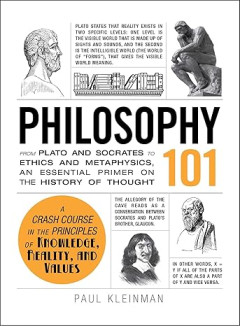
E-book Philosophy 101: From Plato and Socrates to Ethics and Metaphysics, an …
Too often, textbooks turn the noteworthy theories, principles, and figures of philosophy into tedious discourse that even Plato would reject. Philosophy 101 cuts out the boring details and exhausting philosophical methodology, and instead, gives you a lesson in philosophy that keeps you engaged as you explore the fascinating history of human thought and inquisition. From Aristotle and Heideg…
- Edisi
- -
- ISBN/ISSN
- 9781440567674
- Deskripsi Fisik
- 364 halaman, ilus.
- Judul Seri
- -
- No. Panggil
- 101 KLE p

E-book The Wiley Handbook on the Cognitive Neuroscience of Learning
The Wiley Handbook on the Cognitive Neuroscience of Learning charts the evolution of associative analysis and the neuroscientific study of behavior as parallel approaches to understanding how the brain learns that both challenge and inform each other. - Covers a broad range of topics while maintaining an overarching integrative approach - Includes contributions from leading authorities in t…
- Edisi
- First Edition
- ISBN/ISSN
- 9781118650943
- Deskripsi Fisik
- 612 halaman, ilus.
- Judul Seri
- -
- No. Panggil
- 153.1 MUR t
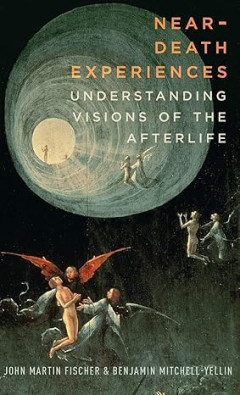
E-book Near-Death Experiences: Understanding Visions of the Afterlife
Near-death experiences offer a glimpse not only into the nature of death but also into the meaning of life. They are not only useful tools to aid in the human quest to understand death but are also deeply meaningful, transformative experiences for the people who have them. In a unique contribution to the growing and popular literature on the subject, philosophers John Martin Fischer and Benj…
- Edisi
- -
- ISBN/ISSN
- 9780190466602
- Deskripsi Fisik
- 209 halaman
- Judul Seri
- -
- No. Panggil
- 133.901 FIS n
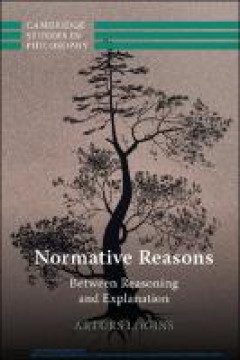
E-book Normative Reasons: Between Reasoning and Explanation
Reasons matter greatly to us in both ordinary and theoretical contexts, being connected to two fundamental normative concerns: figuring out what we should do and what attitudes to have, and understanding the duties and responsibilities that apply to us. This book introduces and critiques most of the contemporary theories of normative reasons – considerations that speak in favour of an action,…
- Edisi
- -
- ISBN/ISSN
- 9781009076012
- Deskripsi Fisik
- 253 halaman, ilus.
- Judul Seri
- -
- No. Panggil
- 153.4 LOG n
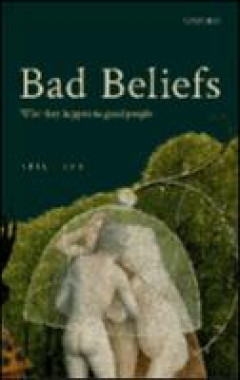
E-book Bad Beliefs: Why They Happen to Good People
Why do people come to reject climate science or the safety and efficacy of vaccines, in defiance of the scientific consensus? A popular view explains bad beliefs like these as resulting from a range of biases that together ensure that human beings fall short of being genuinely rational animals. This book presents an alternative account. It argues that bad beliefs arise from genuinely rational p…
- Edisi
- -
- ISBN/ISSN
- 9780192895325
- Deskripsi Fisik
- 211 halaman
- Judul Seri
- -
- No. Panggil
- 170 LEV b
E-book Scepticism and Belief in English Witchcraft Drama, 1538–1681
Witchcraft is often thought of, wrongly, as a thing of the past. In fact, it continues to be taken seriously by people all over the world. But because the subject of this study is, specifically, early modern witchcraft and its dramatic representation, it will be necessary to clarify what the term ‘witch’ meant within this specific context. As several early modern authors on witchc…
- Edisi
- -
- ISBN/ISSN
- 9789198376876
- Deskripsi Fisik
- 355 hlm
- Judul Seri
- -
- No. Panggil
- 133.4 PUD s
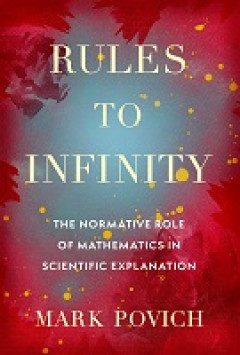
E-book Rules to Infinity: The Normative Role of Mathematics in Scientific Exp…
One central aim of science is to provide explanations of natural phenomena. What role(s) does mathematics play in achieving this aim? How does mathematics contribute to the explanatory power of science? Rules to Infinity defends the thesis, common though perhaps inchoate among many members of the Vienna Circle, that mathematics contributes to the explanatory power of science by expressing conce…
- Edisi
- -
- ISBN/ISSN
- 9780197679012
- Deskripsi Fisik
- 336 halaman, ilus.
- Judul Seri
- -
- No. Panggil
- 121.4 POV r
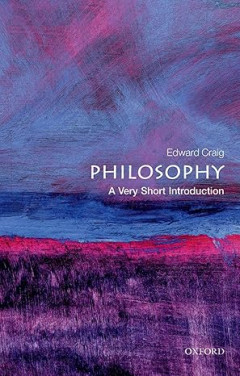
E-book Philosophy: A Very Short Introduction
How ought we to live? What really exists? How do we know? This book introduces important themes in ethics, knowledge, and the self, via readings from Plato, Aristotle, Descartes, Hegel, Darwin, and Buddhist writers. It emphasizes throughout the point of studying philosophy, explains how different areas of philosophy are related, and explores the contexts in which philosophy was and is studied.
- Edisi
- -
- ISBN/ISSN
- 9780192854216
- Deskripsi Fisik
- 145 halaman
- Judul Seri
- -
- No. Panggil
- 101 CRA p
E-book Dark Skies : Places, Practices, Communities
A fascination with the night sky is integral to the story of what it is to be human. The history of our relationship with dark skies is diverse and rich, a connection across space and time that has shaped and been shaped by society, culture, and reli-gion, as well as science. Beyond the astronomical, scientific understandings about the universe, the stars, planets, and moon have proved inspirat…
- Edisi
- -
- ISBN/ISSN
- 9781003408444
- Deskripsi Fisik
- 294 hlm
- Judul Seri
- -
- No. Panggil
- 150 ASF d
E-book Humane Autonomous Technology: Re-thinking Experience with and in Intel…
This open access book takes a human-focused multidisciplinary look at the ways in which autonomous technology shapes experience, affecting human lives and ways of working in settings ranging from the arts, design, and service to maritime and industry. The book focuses on the humane, observing how technology can be designed and implemented in an ethical, human-centered way. Chapters in this book…
- Edisi
- -
- ISBN/ISSN
- 9783031665288
- Deskripsi Fisik
- 349 halaman, ilus.
- Judul Seri
- -
- No. Panggil
- 153 ROU h
E-book Emotional Drivers of Innovation : Exploring the Moral Economy of Proto…
In the ethnographical examination of entrepreneurial-creative places such asmakerspaces, incubators, or living labs, I frequently encountered assertions andexplanatory patterns imbued with emotion. Interestingly, these narratives oftenseem to evade a conscious acknowledgement of their emotional nature. Instead,participants describe experiences asmagical moments, visions of a brighter future,afl…
- Edisi
- -
- ISBN/ISSN
- 9783839471470
- Deskripsi Fisik
- 207 hlm
- Judul Seri
- -
- No. Panggil
- 128.37 SOR e
E-book Emotion, Reason and Action in Kant
Th is is a book about practical reason, action, and emotion in Kant. My aim is to answer what is the real importance of emotion for Kant. I will try to show that Kant had considerable views about emotions and that he was not blind to their importance in action in general. My object is not moral action, but action in general, including weak and even evil ones. My purpose is to show that Kant de…
- Edisi
- -
- ISBN/ISSN
- 9781350078376
- Deskripsi Fisik
- 221 hlm
- Judul Seri
- -
- No. Panggil
- 142 BOR e

E-book Self-Help in the Digital Age: TED Talks, Speculative Fiction, and the …
In an age where science and technology hold sway and the humanities face a crisis, this book explores the evolving role of literature. It delves into how American self-help culture shapes contemporary ideals of success, mindfulness, and happiness, with a particular focus on its influence in science communication, notably in TED talks. Moreover, it underscores the enduring relevance of literatur…
- Edisi
- -
- ISBN/ISSN
- 9783111388267
- Deskripsi Fisik
- De Gruyter
- Judul Seri
- -
- No. Panggil
- 150.1 FIL s
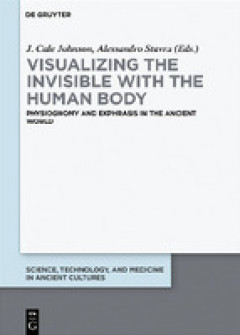
E-book Visualizing The Invisible with The Human Body
Physiognomy and ekphrasis are two of the most important modes of description in antiquity and represent the necessary precursors of scientific description. The primary way of divining the characteristics and fate of an individual, whether inborn or acquired, was to observe the patient’s external characteristics and behaviour. This volume focuses initially on two types of descriptive literatur…
- Edisi
- -
- ISBN/ISSN
- 9783110642681
- Deskripsi Fisik
- 509 halaman
- Judul Seri
- -
- No. Panggil
- 138 JOH v
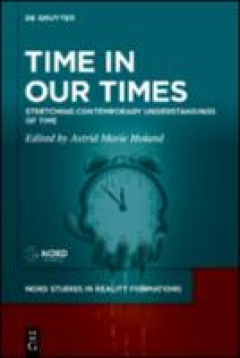
E-book Time in Our Times: Stretching Contemporary Understandings of Time
What is happening to perceptions of time, durability and reality in the 21th century? This anthology explores a diversity of uncommon insights about time, as seen from our historical and geographical standpoint. It sheds new light on how construction, perception and regulation of time influences a person’s whole being in the world, collectively and individually, in the short and long run, fro…
- Edisi
- -
- ISBN/ISSN
- 9783111428970
- Deskripsi Fisik
- 357 halaman
- Judul Seri
- -
- No. Panggil
- 115 HOL t

E-book The Global Wireless: Transnational Radiotelegraphy and Its Disruption …
The Global Wireless charts a history of wireless beginning in the 1910s, when it was used as a tool for global communication, and ending as it declined and slowly fell from view after World War I. Examining the political negotiations and international communication networks, the book demonstrates how a wireless technology had already spread around the globe a century ago and prompted a radical …
- Edisi
- -
- ISBN/ISSN
- 9783111202327
- Deskripsi Fisik
- 249 halaman, ilus.
- Judul Seri
- -
- No. Panggil
- 172.4 RIK t
E-book Security in a Small Nation : Scotland, Democracy, Politics
Questions about ‘security’ provide a lens that brings issues of national independence into sharp focus. In the first instance, security concerns the ability of a state to protect its inhabitants from danger. The idea that security is the first responsibility of government has long been a political mantra. But choosing strategies to ensure a country’s eff…
- Edisi
- -
- ISBN/ISSN
- 9781783742707
- Deskripsi Fisik
- 254 hlm
- Judul Seri
- -
- No. Panggil
- 172.2 ATK s
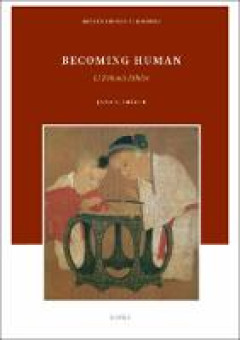
E-book Becoming Human: Li Zehou's Ethics
The book Becoming Human: Li Zehou’s Ethics offers a critical introduction and in-depth analysis of Li Zehou’s moral philosophy and ethics. Li Zehou, who is one of the most influential contemporary Chinese philosophers, believes that ethics is the most important philosophical discipline. He aims to revive, modernize, develop, and complement Chinese traditional ethics through what he calls �…
- Edisi
- -
- ISBN/ISSN
- 9789004423664
- Deskripsi Fisik
- 347 halaman, ilus.
- Judul Seri
- -
- No. Panggil
- 170.0 ROS b
E-book Islamic Sensory History: Volume 2: 600–1500
Islamic Sensory History, Volume 2: 600–1500 presents a selection of texts translated into English from Arabic and Persian. These selected texts all offer illustrative engagements with issues related to the sensorium in different times, places, and social milieus throughout the early and medieval history of Islamic societies. Each chapter is prefaced by an introductory essay by the translator,…
- Edisi
- -
- ISBN/ISSN
- 9789004515932
- Deskripsi Fisik
- 617 halaman, ilus.
- Judul Seri
- -
- No. Panggil
- 152 BUR i

E-book Homo Educandus: Why Our School System is Broken and What We Can Do Abo…
Linnaeus, the Swedish taxonomist, was wrong when he named our species Homo sapiens, i.e. wise man. We are not. We do too many senseless, destructive and irresponsible things to deserve that label. Actually, we need to be educated. Fortunately, we can be educated. We can transform ourselves. We are Homo educandus. Sadly, our current school system is broken. In fact, it does not support education…
- Edisi
- -
- ISBN/ISSN
- 9789083178905
- Deskripsi Fisik
- 246 halaman, ilus.
- Judul Seri
- -
- No. Panggil
- 150.0 BRA h
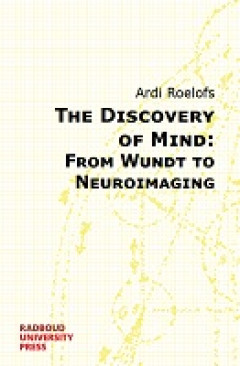
E-book The Discovery of Mind: From Wundt to Neuroimaging
This book presents a concise history of the scientific discovery of the mind. Although people have speculated about the nature and functioning of their minds for thousands of years, it was only about 200 years ago that they replaced the philosophical armchair with the laboratory and began to investigate the mind scientifically. Surprisingly, the work of one of the founders of scientific psychol…
- Edisi
- -
- ISBN/ISSN
- 9789493296794
- Deskripsi Fisik
- 237 halaman, ilus.
- Judul Seri
- -
- No. Panggil
- 128.2 ROE t
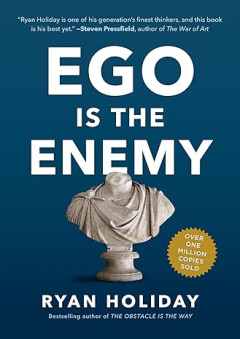
E-book Ego Is the Enemy
Many of us insist the main impediment to a full, successful life is the outside world. In fact, the most common enemy lies within: our ego. Early in our careers, it impedes learning and the cultivation of talent. With success, it can blind us to our faults and sow future problems. In failure, it magnifies each blow and makes recovery more difficult. At every stage, ego holds us back. Ego Is…
- Edisi
- -
- ISBN/ISSN
- 9781591847816
- Deskripsi Fisik
- 168 halaman, ilus.
- Judul Seri
- -
- No. Panggil
- 155.25 HOL e
E-book Encyclopedia of Time: Science, Philosophy, Theology, & Culture
Surveying the major facts, concepts, theories, and speculations that infuse our present comprehension of time, the Encyclopedia of Time: Science, Philosophy, Theology, & Culture explores the contributions of scientists, philosophers, theologians, and creative artists from ancient times to the present. By drawing together into one collection ideas from scholars around the globe and in a wide ran…
- Edisi
- -
- ISBN/ISSN
- 9781412941648
- Deskripsi Fisik
- 1576 halaman, ilus.
- Judul Seri
- -
- No. Panggil
- 115.03 BIR e
E-book The Marion Milner Method : Psychoanalysis, Autobiography, Creativity
This book’s cover image is a self-portrait painted by the British psychoanalyst and author Marion Milner. Dressed in the painter’s archetypal blue smock, at easel and with palette and brush at hand, Milner rests her gaze intently on the canvas as the viewer catches her in the act of creation. The painting is undated but, given the subject’s youthful appearance, was likely created during M…
- Edisi
- -
- ISBN/ISSN
- 9781003296720
- Deskripsi Fisik
- 194 hlm
- Judul Seri
- -
- No. Panggil
- 150.195 HAL t

E-book Concepts at the Interface
Research on concepts has concentrated on the way people apply concepts online, when presented with a stimulus. Just as important, however, is the use of concepts offline, when planning what to do or thinking about what is the case. There is strong evidence that inferences driven by conceptual thought draw heavily on special-purpose resources: sensory, motoric, affective, and evaluative. At the …
- Edisi
- -
- ISBN/ISSN
- 9780198893660
- Deskripsi Fisik
- 270 halaman
- Judul Seri
- -
- No. Panggil
- 100 SHE c
E-book Foucault in Iran, 1978–1979
Whatever else he may have become and if he indeed became ‘what one is’, Michel Foucault (15 October 1926–25 June 1984) was first and foremost a philosopher and an activist historian of ideas. Since he started publishing his provocative philosophical works in the late 1950s, he always maintained a unique interest in the role of the intellectual as both a…
- Edisi
- -
- ISBN/ISSN
- 9781928523307
- Deskripsi Fisik
- 236 hlm
- Judul Seri
- -
- No. Panggil
- 181.5 BEU f
E-book The Problem of Evil for Atheists
The eighteenth-century philosopher George Berkeley faced criticisms fromcontemporaries who argued that his metaphysical system, that is, idealism,lacked a compelling solution to the problem of evil. In response, Berkeleydid not propose a solution to the problem of evil. Instead, he pointed outthat his system was not unique in failing to solve the problem; everyalternative system had also encoun…
- Edisi
- -
- ISBN/ISSN
- 9780198901884
- Deskripsi Fisik
- 267 hlm
- Judul Seri
- -
- No. Panggil
- 149.7 NAG t
E-book Calm the F*ck Down: How to Control What You Can and Accept What You Ca…
Tame anxiety and take back control of your life with this "genius" (Cosmopolitan) no-f*cks-given guide from the bestselling author of The Life-Changing Magic of Not Giving a F*ck and Get Your Sh*t Together. Do you spend more time worrying about problems than solving them? Do you let unexpected difficulties ruin your day and do "what ifs" keep you up at night? Sounds like you need to Calm the…
- Edisi
- -
- ISBN/ISSN
- 9780316529150
- Deskripsi Fisik
- 82 halaman
- Judul Seri
- -
- No. Panggil
- 150.1 KNI c
E-book Sweet Spots : Writing the Connective Tissue of Relation
My dad had high hopes for me to become a profession-al golfer. In my early teens, I could out-drive his golfing buddies, who would gape at my easy swing and hand–eye–body precision. This would pump up my father’s de-termination to groom my natural ability. He entered me in summer tournaments throughout the Pacific North-west. But I lacked the cutthroat drive…
- Edisi
- -
- ISBN/ISSN
- 9781685710118
- Deskripsi Fisik
- 265 hlm
- Judul Seri
- -
- No. Panggil
- 189 SEM s
E-book Critique of Fantasy : Between a Crypt and a Datemark
I have touched down in the Star Wars franchise on several occa-sions to illustrate a historical paradox I once dared name “Nazi Psychoanalysis.”1 Let me say right off that this study will not look more closely at the Star Wars movies.2 Instead, it will explore a terrain between the science fiction and fantasy genres that the success of George Lucas’s 1977 film illuminated and …
- Edisi
- vol. I
- ISBN/ISSN
- 9781950192922
- Deskripsi Fisik
- 255 hlm
- Judul Seri
- -
- No. Panggil
- 150.195 RIC c
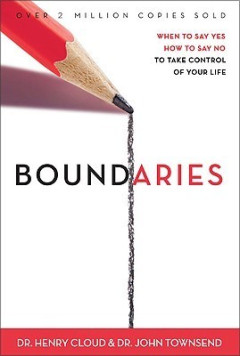
E-book Boundaries: When to Say Yes, How to Say No to Take Control of Your Life
Having clear boundaries is essential to a healthy, balanced lifestyle. A boundary is a personal property line that marks those things for which we are responsible. In other words, boundaries define who we are and who we are not. Boundaries impact all areas of our lives: Physical boundaries help us determine who may touch us and under what circumstances -- Mental boundaries give us the freedom t…
- Edisi
- -
- ISBN/ISSN
- 9780310243750
- Deskripsi Fisik
- 357 halaman
- Judul Seri
- -
- No. Panggil
- 102 CLO b
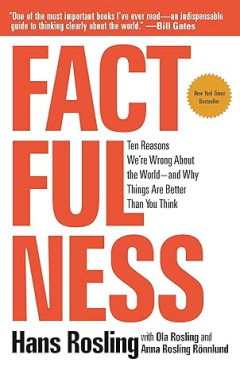
E-book Factfulness: Ten Reasons We're Wrong About the World--and Why Things A…
When asked simple questions about global trends?what percentage of the world’s population live in poverty; why the world’s population is increasing; how many girls finish school?we systematically get the answers wrong. So wrong that a chimpanzee choosing answers at random will consistently outguess teachers, journalists, Nobel laureates, and investment bankers. In Factfulness, Professor …
- Edisi
- -
- ISBN/ISSN
- 9781250107817
- Deskripsi Fisik
- 273 halaman
- Judul Seri
- -
- No. Panggil
- 150.1 ROS f
E-book Reasons and Persons
This book challenges, with several powerful arguments, some of our deepest beliefs about rationality, morality, and personal identity. The author claims that we have a false view of our own nature; that it is often rational to act against our own best interests; that most of us have moral views that are directly self-defeating; and that, when we consider future generations the conclusions will …
- Edisi
- -
- ISBN/ISSN
- 978019824908X
- Deskripsi Fisik
- 560 halaman
- Judul Seri
- -
- No. Panggil
- 170.0 PAR r
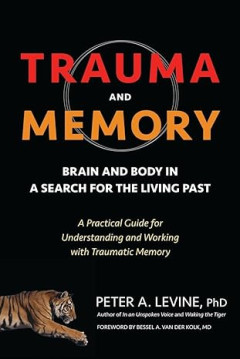
E-book Trauma and Memory: Brain and Body in a Search for the Living Past: A P…
In Trauma and Memory, bestselling author Dr. Peter Levine (creator of the Somatic Experiencing approach) tackles one of the most difficult and controversial questions of PTSD/trauma therapy: Can we trust our memories? While some argue that traumatic memories are unreliable and not useful, others insist that we absolutely must rely on memory to make sense of past experience. Building on his 45 y…
- Edisi
- -
- ISBN/ISSN
- 9781583949955
- Deskripsi Fisik
- 205 halaman
- Judul Seri
- -
- No. Panggil
- 153.13 LEV t
 Karya Umum
Karya Umum  Filsafat
Filsafat  Agama
Agama  Ilmu-ilmu Sosial
Ilmu-ilmu Sosial  Bahasa
Bahasa  Ilmu-ilmu Murni
Ilmu-ilmu Murni  Ilmu-ilmu Terapan
Ilmu-ilmu Terapan  Kesenian, Hiburan, dan Olahraga
Kesenian, Hiburan, dan Olahraga  Kesusastraan
Kesusastraan  Geografi dan Sejarah
Geografi dan Sejarah